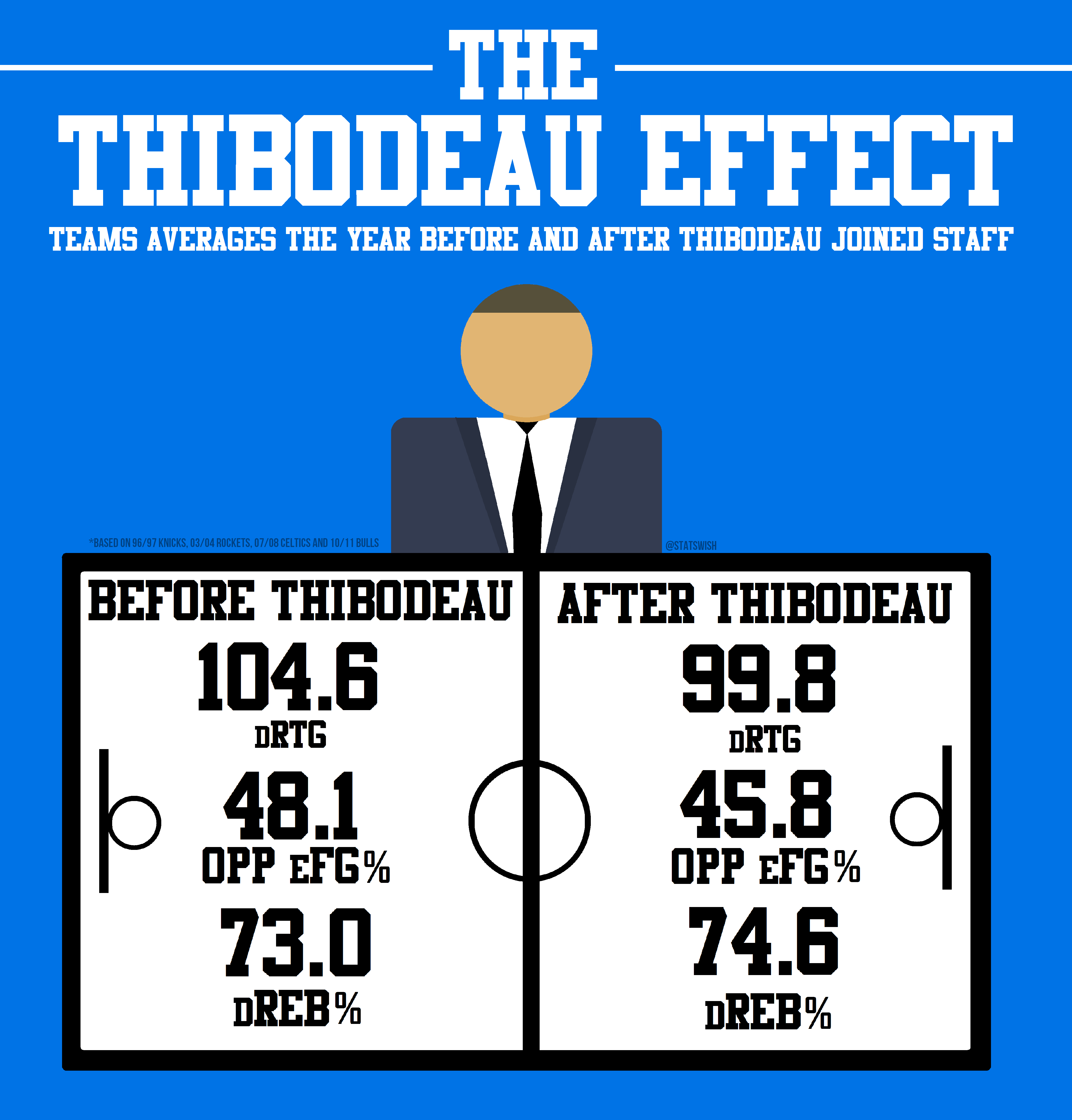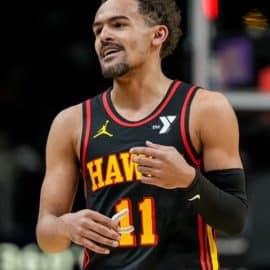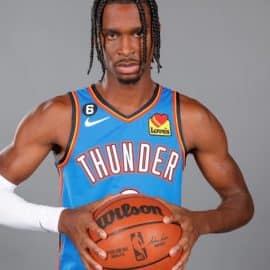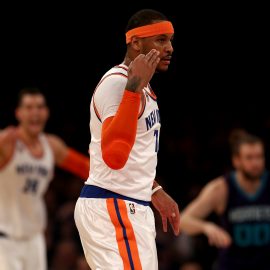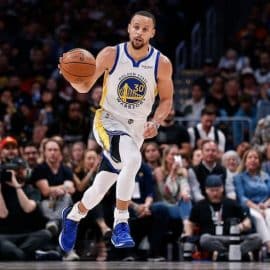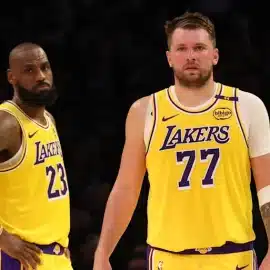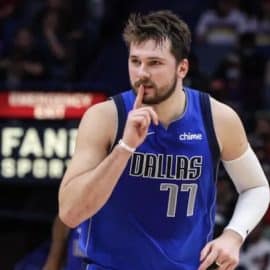Watch Tom Thibodeau patrol the sidelines and a few words come to mind: Intensity. Dedication. Intimidation. Each of these words could just as easily describe the demeanor of a lockdown defender. The effectiveness of a defender is in some ways determined by just how hard the defender is willing to work, and Tom Thibodeau is the embodiment of this principle. Perhaps this is why he has become one of the preeminent defensive minds in basketball.
Tom Thibodeau has been around the NBA for quite some time, beginning in 1989 with his inaugural coaching job under Bill Musselman of the expansion Minnesota Timberwolves. From there he bounced around for a couple years. First, as a scout with the Seattle Supersonics, and then as an assistant coach with the San Antonio Spurs and Philadelphia 76ers. In 1995, he landed with Jeff Van Gundy, who was at the time the head coach of the New York Knicks. Van Gundy and Thibodeau guided the New York Knicks to a then-NBA record 33 straight games holding opponents below 100 points. When Van Gundy moved from the Knicks to the Houston Rockets in 2003, Thibodeau followed. In 2007, Thibodeau was hired as the associate head coach of the Boston Celtics, where he helped lead them to the league’s best defense, 2 finals appearances, and 1 championship in 2008. Finally in 2010, Thibodeau caught his big break and was named head coach of the Chicago Bulls, where he led the Bulls to the Eastern Conference Finals in his first season, behind the best defense in the NBA. Following 5 successful but tumultuous years in Chicago, he was fired by Bulls management. After taking a year off to tour the league and interact with and learn from other organizations, he is now back in the mix as the Timberwolves president of basketball operations and head coach (funny how things come full circle!).
Now, Tom Thibodeau is certainly known around the league as a defensive maestro, but is that reputation deserved? Let’s take a look at the stats. In this article, I examine the following three major defensive stats (all stats per basketball-reference.com): defensive rating (Drtg), effective field goal percentage (eFG%), and defensive rebound percentage (DRB%). Drtg is simply the number of points allowed per 100 possessions. As opposed to points per game, Drtg considers pace of play, so a team is not penalized for playing at a faster pace. eFG% takes into account the fact that three pointers are worth more than two pointers when figuring shooting percentage. For example, a player who shoots 2 for 5 with one three pointer has a FG% of 40% but an eFG% of 50%. As the volume of three pointers attempted expands year by year, this stat is becoming more and more vital. Lastly, DRB% estimates the percentage of all available rebounds that the defensive team grabs. Taken together, these stats represent a relatively holistic view of every team’s main defensive goals, reduce the opposing team’s shooting percentage, grab all the rebounds, and ultimately, allow fewer points.
So let’s consider how Tom Thibodeau improves (or degrades) his team’s performance in these stats his first year with a new team, using the previous year as the baseline.
| Knicks (95-96) | Knicks/T (96-97) | Rocket (02-03) | Rockets/T (03-04) | Celtics (06-07) | Celtics/T (07-08) |
Bulls (09-10) | Bulls/T (10-11) | |
| Drtg | 103.5 (4th) | 101.0 (2nd) |
102.6 (14th) | 99.0 (5th) |
106.9 (16th) | 98.9 (1st) |
105.3 (11th) | 100.3 (1st) |
| eFG% | 47.6 (3rd) |
46.3 (1st) |
46.2 (6th) |
44.7 (4th) |
50.2 (20th) | 45.7 (1st) |
48.4 (7th) |
46.3 (1st) |
| DRB% | 71.1 (4th) |
73.4 (1st) |
72.4 (11th) |
74.5 (2nd) |
73.8 (12th) | 74.4 (8th) |
74.8 (8th) |
76.2 (3rd) |
T, with Thibs; NBA rank in parentheses.
As seen in the table, Tom Thibodeau invariably improved his team’s defense in all 3 of these categories his first year on the job. He took a great defense in New York, led by the hard-nosed Patrick Ewing and Charles Oakley, and made it even better. He took a mediocre defense in Houston and made it top-5 in the league. And lest you think it was all Jeff Van Gundy, he took a middling defense in Boston and made it the best in the league. I know, I know, a huge part of the improvement in Boston was a result of the additions of both Ray Allen and especially Kevin Garnett in the summer of 2007. The same cannot be said about the improvement of the Chicago Bulls when he took over as head coach. Again, the Bulls went from an average to above average defense to the best defense in the league, this time led by Thibodeau as head coach. And this time, the only major addition to the roster was Carlos Boozer, who can hardly be called a defensive specialist. So it seems that, in fact, Tom Thibodeau’s reputation as a defensive-minded coach does have some merit, judging by his immediate impact on his previous team’s defenses.
How does this affect the 2016-17 Timberwolves? Well, the Timberwolves could certainly benefit from some improvement on defense. Last year, they limped to a 110.1 Drtg, good for 28th in the league. On top of that they allowed a 52.4% eFG%, and only snagged 74.7% of defensive rebounds, landing them at 29th and 23rd in the league, respectively. In short, the Timberwolves were good neither at preventing the other team from making baskets nor at recovering possession when the other team missed a shot. Based on his track record, Tom Thibodeau can and will greatly improve the Wolves defense in 2016-17. Although none of the defenses he has taken over have been quite as bad as the Wolves were in 2015-16, the closest match is the 03-04 Rockets. If history is any indicator, we can expect a middle of the pack defense, somewhere in the range of 10-15. Perhaps I’m just a homer, but I wouldn’t say this is out of the question.
From a personnel standpoint, Ricky Rubio is already a very good defender at the point guard position, and the addition of Kris Dunn, a former Big East defender of the year certainly won’t hurt. If anyone can unlock the defensive potential of Zach Lavine and Andrew Wiggins, it’s Tom Thibodeau. On top of that is the Wolves budding superstar, Karl Anthony Towns, who was already 4th in the NBA in rebounds and 6th in the league in blocks last year, despite only playing 32 minutes per game. Getting defensive stops from the second unit will certainly be key. How well players like Shabazz Muhammad, Nemanja Bjelica, and Tyus Jones play defense will be a big factor in how much the Timberwolves improve this year.
At this point we still don’t know whether and how much the Timberwolves defense will improve next season, but given the Wolves defense last year and Tom Thibodeau’s history as a proven defensive coach, there’s nowhere to go but up.
Add The Sports Daily to your Google News Feed!
